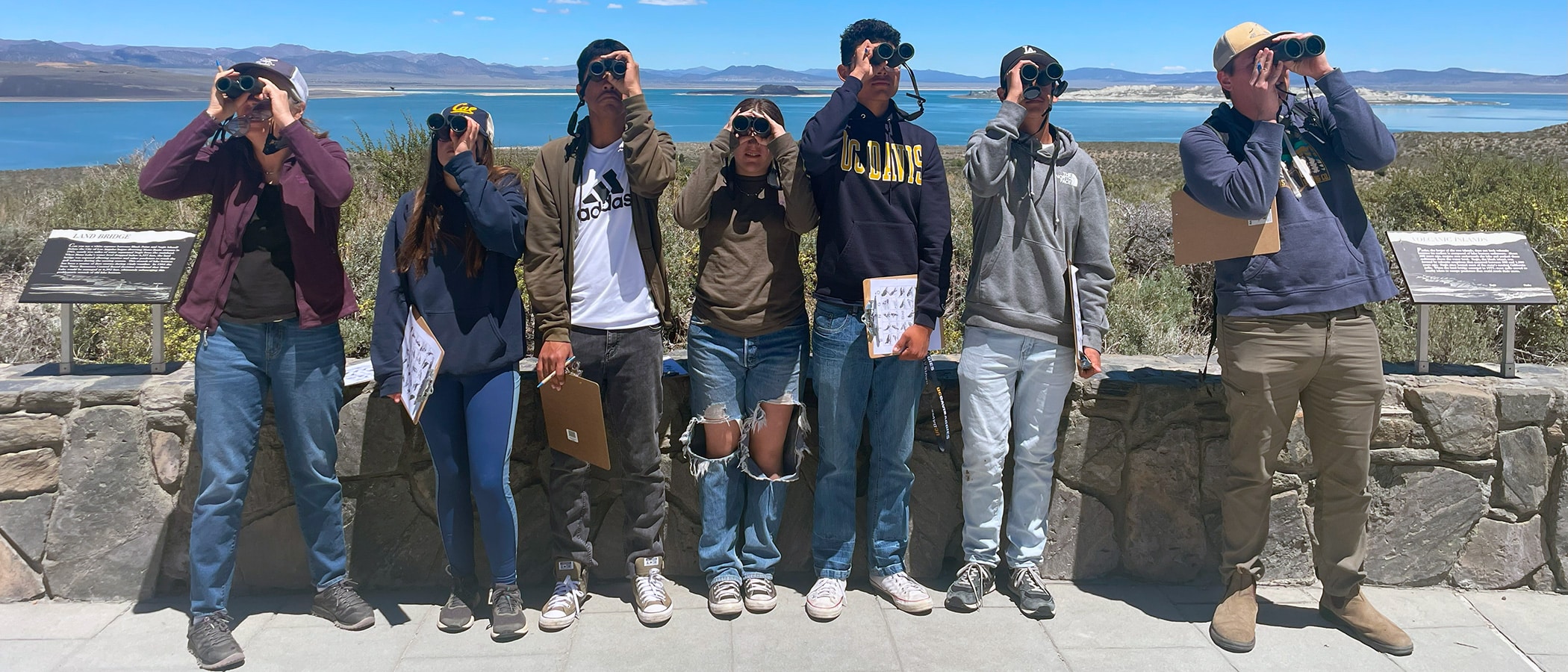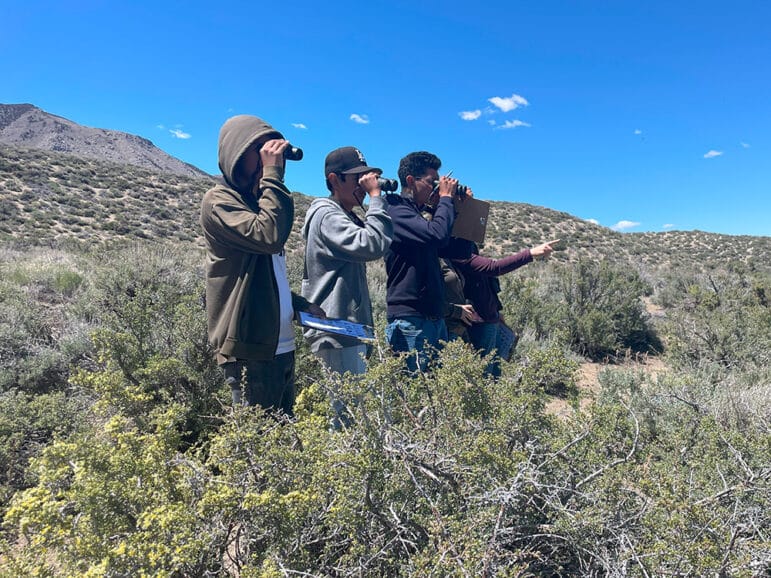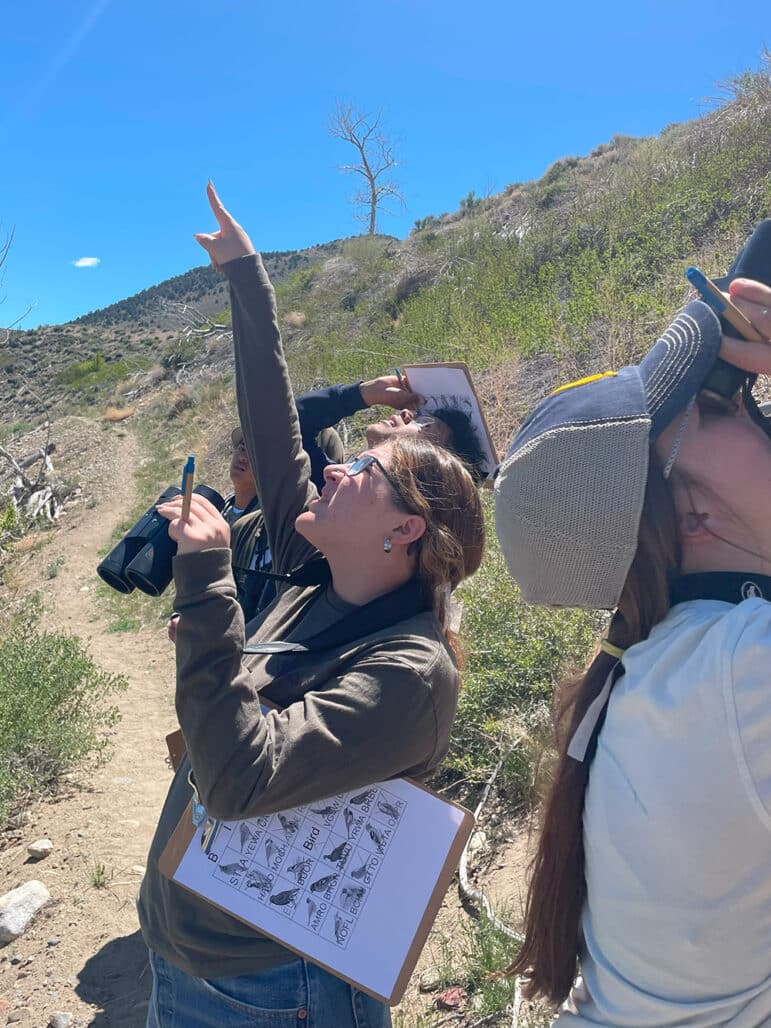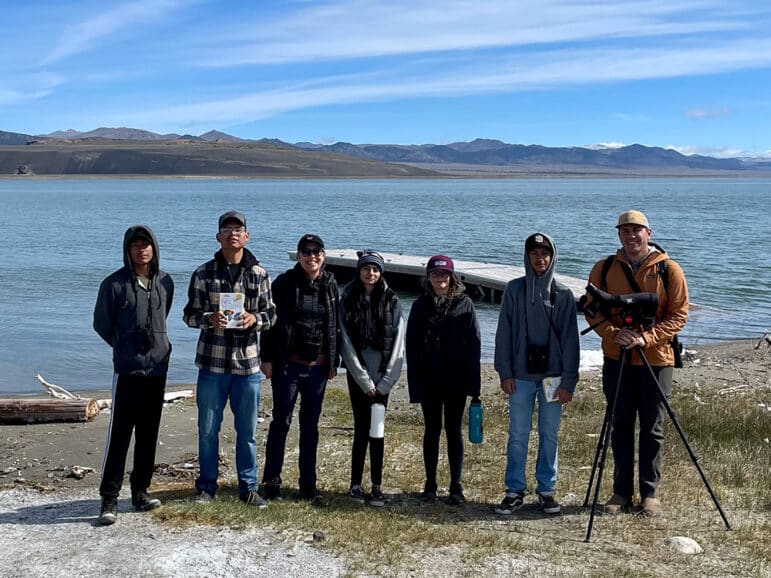
Over the last two months, Lee Vining students who are part of the Experience Ambientalia program participated in the Intermountain West Shorebird Survey and celebrated World Migratory Bird Day. In partnership with the Mono Lake Committee, local high school teachers, and our colleagues at Laguna Mar Chiquita in northern Argentina, these students surveyed Mono Lake’s shoreline in search of shorebirds and birded Lee Vining Creek in search of songbirds.

On April 27, the Experience Ambientalia students contributed to the Intermountain West Shorebird Survey of Mono Lake. In a community science effort organized by the non-profit group Oikonos Ecosystem Knowledge, 30 volunteers surveyed 45 miles of shoreline, covering the entire perimeter of Mono Lake, in search of shorebirds. Even at its unnaturally low level, Mono Lake is a huge lake, and shorebird numbers and distribution here are poorly understood. Mono Lake is a vital part of the larger bird migration picture called the Pacific Flyway. Migratory birds feed on Mono Lake’s abundant brine shrimp and alkali flies to fuel them on their journey to their wintering grounds thousands of miles away.

Experience Ambientalia students surveyed the shoreline from Old Marina to the Lee Vining Creek delta. They found 9 Killdeer, 1 Wilson’s Snipes, and 35 Least Sandpipers. They were able to identify these birds using guides provided to them by the Eastern Sierra Audubon Society. These 45 birds were hard-earned as the students had to trudge through dense marsh, buggy brush, and muddy flats along their two-mile observation section.
Their counterparts in Argentina took part in a shorebird survey of Laguna Mar Chiquita as well. Students there learned about how to develop shorebird survey protocols and then went into the field in search of shorebirds. They found Southern Lapwings, Black-necked Stilts, and Chilean Flamingos.
Then on May 11, students on both sides of the hemisphere celebrated World Migratory Bird Day. Our students in Lee Vining birded Lee Vining Creek and played a game of Bird Bingo, combining the traditional format of bingo with bird watching and identification. Our peers in Argentina did the same and learned how insects are an important food source to avian life.
These were the last field activities for students from Mono Lake and Laguna Mar Chiquita before they migrate across the hemispheres to connect with their peers in person at their respective lakes in an international exchange. In June, students from Argentina will travel to Mono Lake to spend a week with Lee Vining students at the Mono Basin Outdoor Education Center and participate in the Mono Basin Bird Chautauqua. And in July, the Lee Vining students will travel to Laguna Mar Chiquita to connect with the roots of the program and their international peers.
This exchange would not be possible without the support of Mammoth Lakes Rotary, Bishop Sunrise Rotary, DeChambeau Creek Foundation, June Lake Women’s Club, Eastern Sierra Audubon Society, and Mono Lake Committee members.
We are still seeking support to cover essential expenses and educational materials to provide these life-changing opportunities to deserving students. If you are interested in supporting the Experience Ambientalia program, you can do that by clicking below:

Top photo by Ryan Garrett.
